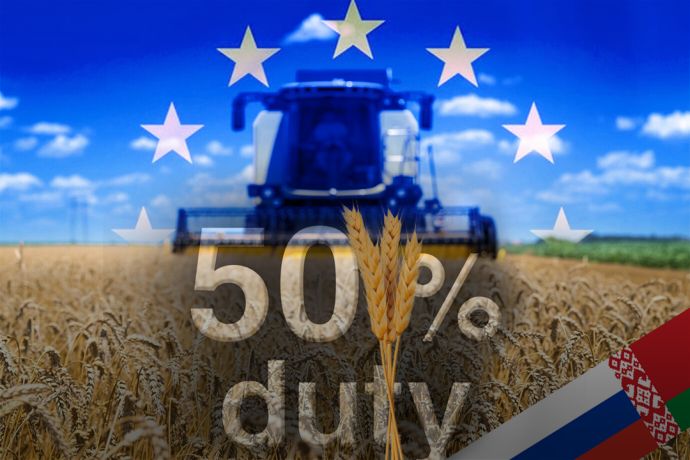The European Commission has prepared a decision to impose tariffs on grain imports from Russia and Belarus into the EU at a rate of 95 euros per tonne, constituting a 50% duty. Additionally, Russia and Belarus will lose access to EU quotas for grain, which provided more favourable conditions for certain products, as reported on the European Commission’s website.
This proposal was presented to EU leaders at the summit in Brussels on March 21-22 by President of the European Commission Ursula von der Leyen. Her presentation noted that the new tariffs will apply to the import of grains, oilseeds, and their processed products from Russia and Belarus, which previously entered the EU duty-free. This includes crops such as wheat, corn, and sunflower meal.
“We propose imposing tariffs on this Russian import to reduce the growing risk to our markets and our farmers. They will reduce Russia’s ability to use the EU to benefit its military machine. And we continue our commitment to maintaining global food security, especially for developing countries. We strike the right balance between supporting our economy and farming communities while maintaining unwavering support for Ukraine,” explained Ursula von der Leyen, President of the European Commission, regarding the purpose of this decision.
In 2023, Russia exported 4.2 million tonnes of grains to the EU worth 1.3 billion euros. Production volumes from Belarus amounted to 610 thousand tonnes worth 246 million euros, as reported by the European Commission. Overall, the share of Russian grains in the EU market was small, about 1% of total imports. The introduction of tariffs will make Russian products even less attractive in the European market.
This proposal from the European Commission also needs to be approved by the Council of the European Union and will take effect immediately after that. It’s worth noting that ahead of the EU leaders’ summit, agriculture ministers from some countries urged the European Commission to completely ban the import of grain from Russia and Belarus into the EU. This call was made by agriculture ministers from Lithuania, Latvia, Estonia, Poland, and the Czech Republic.
The initiative by Lithuania’s appeal to EU commissioners also includes a call for cooperation among EU member states to ensure the implementation of this restriction throughout the EU territory, particularly to prevent potentially stolen Ukrainian grain from entering the EU market.













